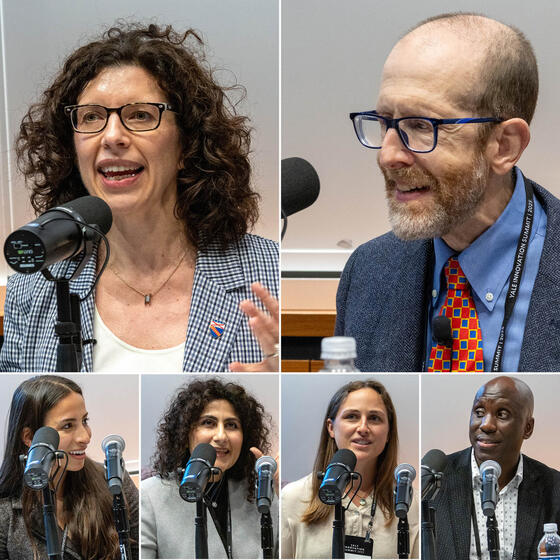
Live at the Yale Innovation Summit 2025
Subscribe to Health & Veritas on Apple Podcasts, Spotify, YouTube, or your favorite podcast player.
In a special episode recorded at Connecticut’s largest entrepreneurship event, Howie and guest host Megan Ranney, the dean of the Yale School of Public Health, welcome four Yale innovators: entrepreneur and YSPH lecturer Kaakpema “KP” Yelpaala; Basmah Safdar, incoming director of Women’s Health Research at Yale; Kayla Wooley, a YSPH graduate and the founder of two nursing home staffing companies; and Yale College student Laurie Jimenez, founder of FulcrumCare, a value-based dental provider for Medicaid and Medicare patients.
Links:
The Yale Innovation Summit
Kaakpema “KP” Yelpaala
“Public health innovator Kaakpema Yelpaala appointed senior fellow and lecturer at YSPH”
Basmah Safdar
“Basmah Safdar, MD, FACEP, Appointed Director, Women’s Health Research at Yale (WHRY)”
Women's Health Research at Yale
“Heart attack symptoms often misinterpreted in younger women”
“Sex Differences in COVID-19 Immune Responses Affect Patient Outcomes”
“Drug Agency Recommends Lower Doses of Sleep Aids for Women”
Kayla Wooley
“Nursing home staff shortages prompted YSPH alumna to form two companies”
“Nursing Home Staffing Shortages and Other Problems Persist, U.S. Report Says”
Laurie Jimenez
“Many Medicare Beneficiaries with Dental Insurance Face Financial Barriers to Care”
“Variation in Use of Dental Services by Children and Adults Enrolled in Medicaid or CHIP”
Learn more about the MBA for Executives program at Yale SOM.